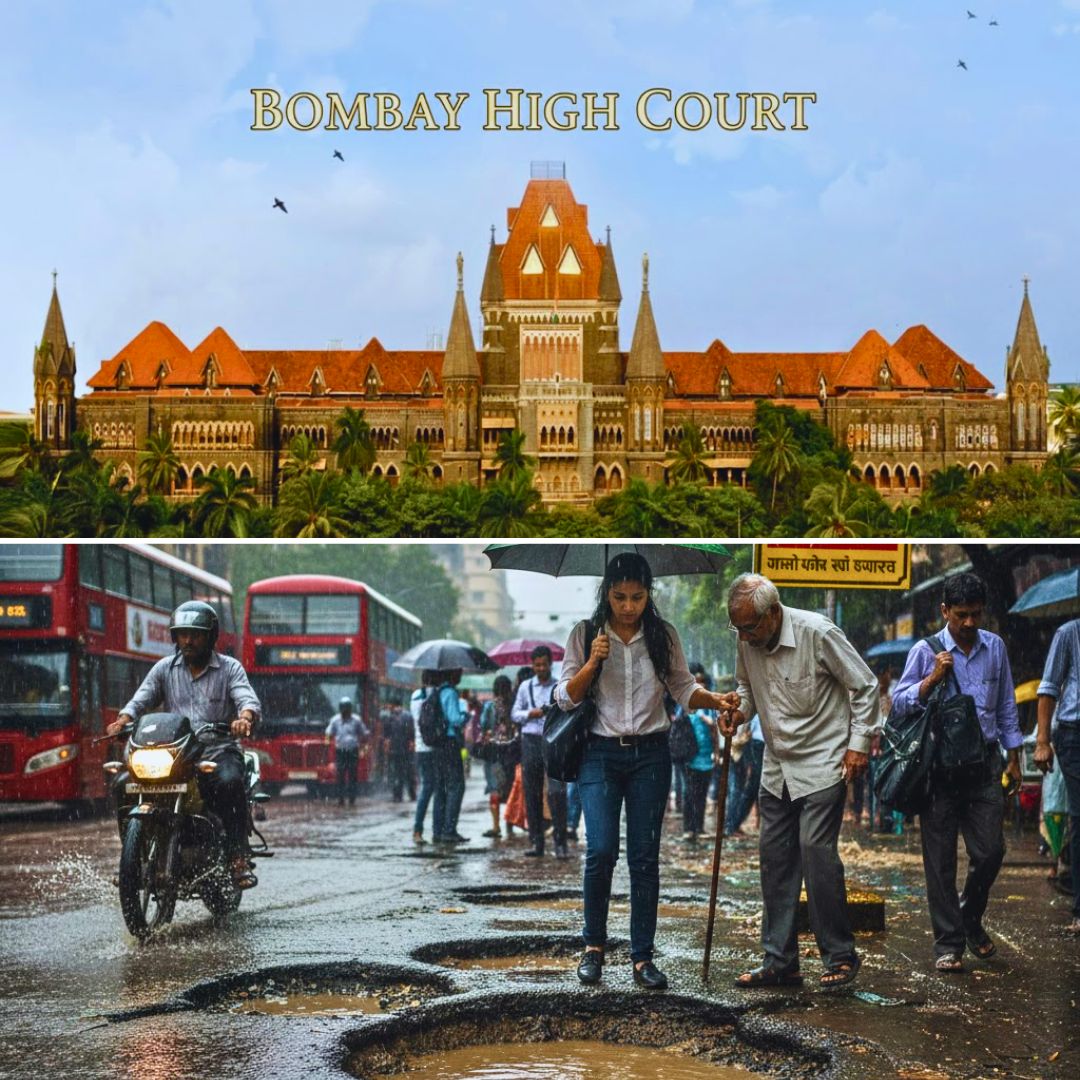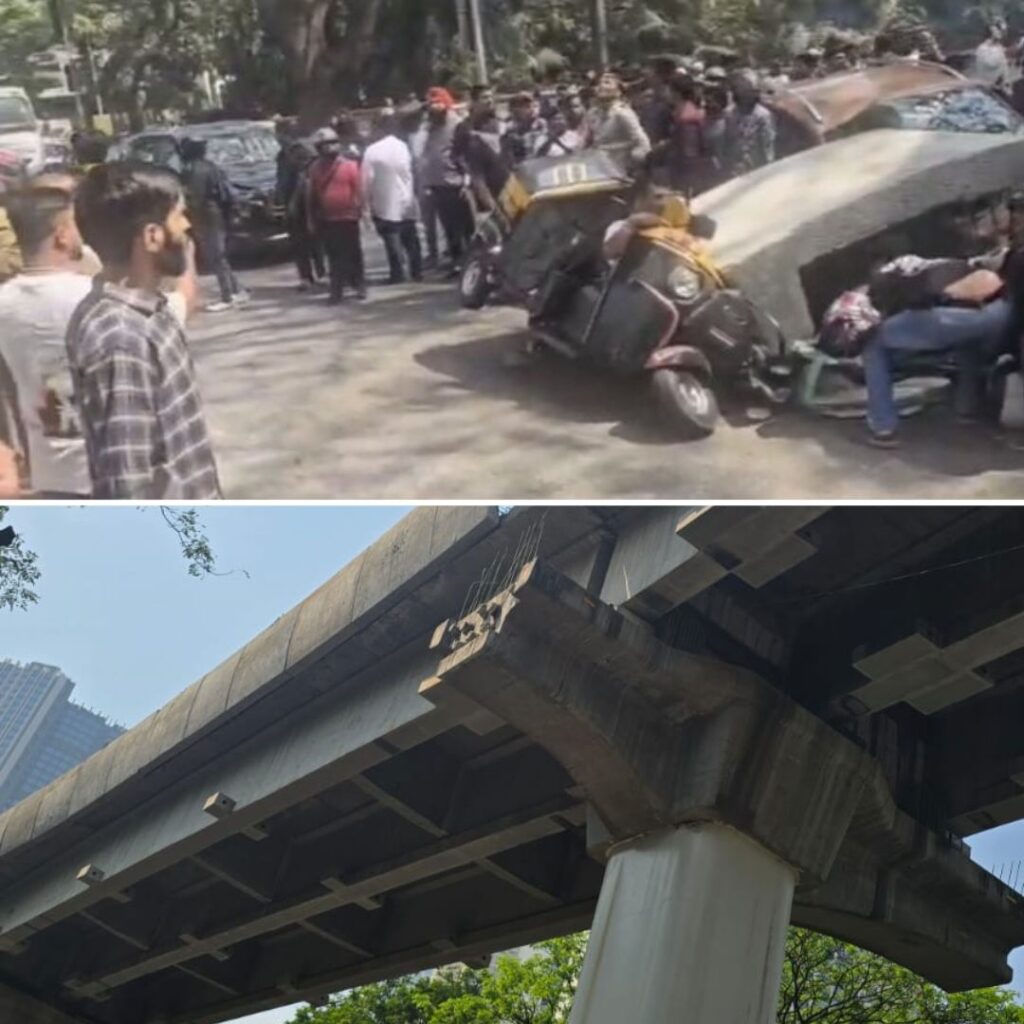The Bombay High Court on October 13, 2025, delivered a powerful ruling addressing the chronic problem of unsafe roads in Mumbai, which has long exposed commuters to risks like potholes and open manholes. The division bench comprising Justices Revati Mohite Dere and Sandesh Patil mandated a uniform compensation framework for victims of pothole-related accidents across Maharashtra.
The Court ordered ₹6 lakh compensation for families of those who died and between ₹50,000 to ₹2.5 lakh for injured individuals based on injury severity. Importantly, the Court made it clear that the civic bodies and government agencies, including the Brihanmumbai Municipal Corporation (BMC), MHADA, MSRDC, and CIDCO, must personally bear the costs for negligence through reimbursements from officers, engineers, or contractors responsible for faulty work.
The Court emphasised that maintaining safe, motorable roads is a constitutional duty under Article 21 -the right to life – and that poor road conditions violate this fundamental right.
Accountability Beyond Just Orders
This directive resulted from a suo motu public interest litigation (PIL) that revived concerns first raised in 2013 and persistently pursued by the judiciary since 2015. The Bench expressed serious concern that, despite multiple court orders over the years, Mumbai’s roads routinely worsen every monsoon, causing fatalities and injuries.
The justices condemned the “systemic negligence” of authorities and blasted mutual blame-shifting among government departments instead of proactive solutions. Calling the MCGM one of Asia’s richest civic bodies, the court criticised the use of public funds and toll revenues that don’t reflect in road quality or safety.
The Court reinforced the obligation that roads should be constructed and repaired to last at least five to ten years, citing the stark contrast between decades-old roads still intact and newly repaired roads that rapidly degrade. By fixing liability personally on officials and contractors, the court aims to inject seriousness and accountability into infrastructure management.
The Persistent Challenge of Mumbai’s Roads
Mumbai’s road condition woes are neither new nor isolated. Each monsoon season brings renewed hazards from potholes, waterlogging, and dangerous open manholes leading to accidents, vehicle damage, and loss of lives. Despite patchwork repairs and assurances from civic authorities, the deterioration is systemic and chronic.
The 77-page judgment details how poor-quality materials and substandard workmanship plague road projects, a problem aggravated by inadequate oversight. Past promises of long-term reform and infrastructure renewal have largely failed to materialise, frustrating residents and commuters across the city and surrounding regions like Thane and Bhiwandi.
The Court’s order mandating potholes be repaired within 48 hours and setting up district-level committees to monitor and expedite compensation are concrete steps aimed at breaking this vicious cycle.
The Logical Indian’s Perspective
This historic Bombay High Court judgment is a clarion call for justice, accountability, and empathy towards everyday citizens navigating Mumbai’s streets. The Logical Indian supports such judicial interventions that shift civic governance from rhetoric to responsibility, demanding that those entrusted with public welfare be financially accountable for ensuring safety.
Infrastructure is a lifeline that sustains socio-economic well-being, and citizens deserve roads that honour their right to life with dignity. Yet, this ruling is only a beginning. Constructive dialogue and cooperation among authorities, contractors, and residents are essential to sustain change and foster a culture of civic pride and care.












